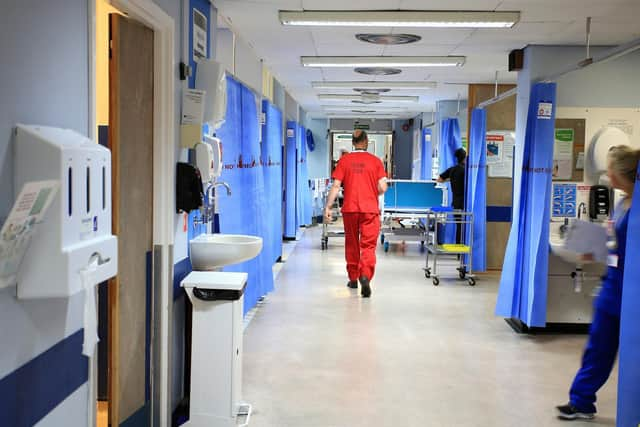Bed blocking hits half of Preston hospital patients
and live on Freeview channel 276
More than half of patients deemed fit to leave Lancashire Teaching Hospitals Trust failed to be discharged on one day last week.
Charity the Health Foundation said hospital discharge delays impact the entire health and social care system, while reducing the NHS’s capacity to tackle the huge backlog caused by the pandemic.
Advertisement
Hide AdAdvertisement
Hide AdPatients should leave hospital on the same day they are assessed as fit for discharge, NHS guidance states.


NHS England data shows 139 patients at Lancashire Teaching Hospitals NHS Foundation Trust were eligible for discharge on December 12 – the latest available data.
However, only 59 left hospital that day, meaning 80 (58 per cent) continued to occupy a bed.
The figures include 29 patients deemed fit to leave who had been in hospital for at least three weeks on December 12 – none of whom were discharged that day.
Advertisement
Hide AdAdvertisement
Hide AdThe proportion of people remaining in hospital beds at Lancashire Teaching Hospitals Trust on December 12 was in line with the same day a week earlier.
Across England, around 11,000 patients – 69 per cent of those ready for discharge on December 12 – continued to occupy a hospital bed.
The data covers adult patients staying in acute trusts with a major A&E department, including those being treated for Covid-19, but excludes maternity patients and children.
Patients eligible for discharge on any one day may have been assessed at an earlier date.
Advertisement
Hide AdAdvertisement
Hide AdTim Gardner, senior policy fellow at the Health Foundation, said issues stem from a lack of suitable capacity outside acute hospitals.
He said: "Problems with discharges often lead to problems admitting patients to wards from A&E departments, which in turn causes delays in ambulance handovers and can affect the ability of the ambulance service to respond to new emergencies.
"Patients who no longer require acute care may still need a combination of social care or non-acute NHS care in the community, but a lack of support following discharge means too many remain in hospital for longer than necessary.
"Reducing these longer stays would help to alleviate pressures on hospitals, creating capacity that could be better used to address the backlog of care built up during the pandemic."
Advertisement
Hide AdAdvertisement
Hide AdHe added staff shortages were also playing a part and a system overhaul was required to address the problems.
Professor Stephen Powis, NHS national medical director, said staff are going "above and beyond", looking after thousands of Covid patients, while also delivering hundreds of thousands of coronavirus jabs.
He added: "No one wants to spend more time in hospital than needed, and local NHS services are continuing to work closely with social care providers so patients can be discharged when they’re fit to leave.
"So as the NHS once again ramps up to deal with what is going to be an incredibly challenging winter, the best thing you can do to help is to come forward and get your jab."